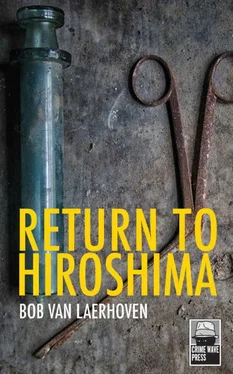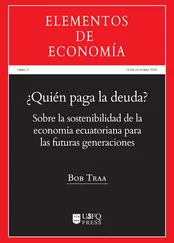“Your uncle had information about a secret that is very important to me. I need to be sure no one else knows about it, even someone who calls himself old fashioned .”
Why is Rokurobei telling him all this? Reizo looks him in the eye and sees his answer: he belongs to the Shiga clan and he’s doomed to die. People didn’t just kill adversaries in ancient Japan. It was important to eliminate your enemy, but just as important to get rid of his family and his blood brothers. Otherwise you could count on a dagger or a sword in your gut sooner or later. His mouth dries up and he finds it hard to breathe. But he’s determined to stay calm and unmoved on the outside, whatever the cost.
“I’m told you’re keen on Mishima,” the serpent’s neck continues.
Reizo says nothing.
“Or rather, you want to outstrip Mishima.”
Reizo looks at the floor. He’s surprised at the clarity in his mind, a gift of the ghb, a clarity almost as intoxicating as any drug can be. It’s a sudden state of grace, of insight into his life and his motivations, something he’s never experienced before. Reizo remembers the anxiety attacks, and the shame that followed them. Speed made him reckless, but it also transformed the darkness into a place of monsters, all of them waiting for him, all of them wanting something from him. But if he confronted them with courage, they would turn and walk away, grey shadows. It all left him surprised and confused. Heroin made him grind his teeth, then it brought a white light that filled the world with breathtaking meaning. After that the illumination withdrew, leaving the darkest pit imaginable in its wake.
“Teach me something, Reizo Shiga,” says the storm god condescendingly. “Tell me about Mishima’s philosophy.” Reizo has a feeling the man knows he’s been parading Mishima all his life without ever having read him properly. He tries to think of an appropriate response. He’s never finished any of Mishima’s novels. It was the elitist author’s life that fascinated him most. Filled with shame, sadness and rebellion, he finally says: “You’re born as a worm, suffer a miserable life of anxiety and paranoia that prevents you from revealing the golden light inside you to others, and then you die, sobbing for your wasted, useless life.”
“A little stilted perhaps, but well put,” says Rokurobei. “And bungled together in too much of a hurry, boy. Mishima’s philosophy was simple, to the point, attractive and true . In Bunka Beiron he wrote: the emperor of Japan is the source of Japanese culture, and thus defending the emperor is the same as defending Japanese culture.”
“The Japanese emperor no longer exists,” says Reizo Shiga.
“True, very true,” says Rokurobei. “But the emperor, boy, we are all that divine being. And our culture has always revered the beauty of cruelty. A man like myself can’t exist without that dramatic beauty. Surely someone like you can understand that.”
Reizo has a feeling that these are the man’s final words. He toys with the idea of bargaining with Mitsuko’s life. But if these killers find her prison, he’s sure to die, and probably a more painful death than they originally planned for him.
Rokurobei leans closer. He seems to be interested in the expression on Reizo’s face. Reizo hangs his head, but his hands fly up unexpectedly, fast and furtive, and tear away the mask.
Hiroshima – in a taxi on the way to Denny’s Diner – Takeda and Becht – night, March 15 th1995
Takeda runs through their plan one last time. He peers at Beate Becht out of the corner of his eye. She’s hardly said a word since her declaration of love in front of the hotel. Did she mean it, or was she just messing around, trying to be provocative? She seems the serious type. Takeda likes her. She’s smart and seems to enjoy the unexpected. But at the same time she’s too eager, as if she’s trying to prove something. Takeda would like to get to know her better, but the temptation scares him.
He tries to concentrate on the confrontation with Takamatsu. The chief commissioner is keeping his options open, he’s sure of that. Takeda has his duty weapon with him. He’s not sure if it will be enough if he’s forced to use it. He figures they’ll try to kidnap him in the restaurant. They won’t use a sniper to take him out because they want the documents and they’re in a safe place. He just has to wait and see what happens. He stuck his neck into the rope of fate and it became a noose. Only detachment can help in such a situation. Is he capable of detachment? He’s surprised at the amount of sadness and fear that have invaded him. Sadness at the death of his wife, more profound than he could ever have imagined. Fear of failure, kept at bay for as long as he can remember. He asks himself if it was jealousy, greed or just sheer badness that had turned Takamatsu into a corrupt cop. He remembers a conversation with the chief commissioner a couple of years back when the man had just been promoted to Keishi-sei , chief commissioner. His face flushed and red from alcohol, Takamatsu had made an allusion to colleagues who had climbed the career ladder faster than him because they knew “which buttons to push”. Takamatsu was the stiff and proud type and wasn’t prone to such outbursts so the remark had stayed with Takeda. Takeda had been inspector for more than ten years. He took part in exams for Keishi, commissioner, a couple of times and was rejected on both occasions. He’s convinced that it had to do with him not being 100% Japanese, not having pure Japanese blood. There were always hundreds of candidates for promotion, whatever the rank, and competition was stiff to say the least, but with his record of service he should have been promoted.
Abuse is rampant in the ranks. Unions are forbidden and the force is divided into prefectures. A Commission for Public Safety is supposed, in theory, to exercise a control function, but in practice it counts for little. In recent months, the cops on the beat have been complaining about the power of the “desk samurai”, and there’s a clear need for unions, but in the meantime nothing has changed. A small group of bureaucrats rules the roost in the prefectures. Takeda’s heard incredible stories about violent feuds inside the force that have been swept under the carpet. The police big wigs seem to be able to do what they want.
Killing the inspector’s wife to try to discredit him seems extreme, incomprehensible perhaps, but since Takeda heard about the identity of the man behind the name Rokurobei he knows he can’t win this fight. Where was his infamous intuition when confusion and arrogance were his only response to Takamatsu’s gibes about his Dai-Ichi-Kangyo Bank theory? He should have guessed that something wasn’t right when the chief commissioner overreacted as he did. He should have apologised a thousand times and thanked Takamatsu profusely for preventing him from making an error of judgement that would ruin his career. Instead he had answered back. From that moment onwards he was a marked man.
“The stakes are high,” he says to break the awkward silence in the taxi. “With the information we received from Yori we’ve been able to piece together an outline of the facts. But does it all tally?”
Beate Becht clears her throat. “When I was a teenager I put together a picture of the life of my uncle on the basis of stories I’d heard from family members. He was an SS officer, involved in the death camps. It was only years later that I managed to persuade my father to tell me the whole story. Then I realised that the picture I had in my mind was pretty close to reality.”
Takeda takes a moment to digest what the German photographer has just told him. He figures it’s a mark of confidence on her part, but decides not to pursue it given the circumstances.
Читать дальше












